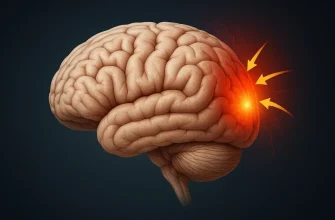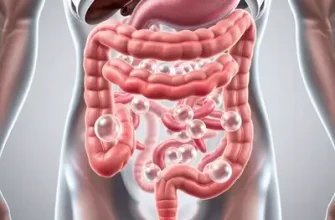Ever felt a sudden twinge or shooting pain in your shoulder and wondered if it’s just a one-off thing or a sign of something serious? You’re not alone. Many people experience unexpected shoulder pain, and it often sparks a series of questions that we may try to ignore. But let’s face it—ignoring pain rarely makes it better. So, what’s behind that sudden pain, and when should you actually take it seriously?
What Could Be Behind Sudden Shoulder Pain?
Sudden shoulder pain can feel like an unexpected guest—one that, frankly, we didn’t invite. It can result from various reasons ranging from a minor strain to something a bit more alarming.
Primary Causes of Sudden Shoulder Pain
| Cause | Percentage of Cases |
|---|---|
| Rotator Cuff Issues | 45% |
| Frozen Shoulder | 20% |
| Bursitis/Tendinitis | 25% |
| Others | 10% |
This chart illustrates the primary causes of sudden shoulder pain, emphasizing the prevalence of rotator cuff issues.
1. Rotator Cuff Issues
The shoulder’s rotator cuff is a group of muscles and tendons that stabilize the joint. A tear or inflammation here can cause sudden, sharp pain. Did you know that rotator cuff tears are one of the leading causes of shoulder pain in adults over 40? According to the American Academy of Orthopedic Surgeons, approximately 2 million people in the U.S. see a doctor annually for rotator cuff issues (AAOS, 2024).
2. Frozen Shoulder (Adhesive Capsulitis)
Frozen shoulder sounds like an amusing nickname, but it’s far from fun. It’s a condition that causes stiffness and pain in your shoulder joint. Interestingly, it often appears out of nowhere, especially if you’ve had your arm immobilized for a while. It affects about 2-5% of the population, with middle-aged individuals being more prone.
3. Bursitis or Tendinitis
Shoulder bursitis or tendinitis can cause sudden pain, usually due to repetitive movement or overuse. Whether it’s painting, throwing a ball, or simply lifting that overloaded grocery bag, these activities can inflame the bursa (a fluid-filled sac) or tendons.
Did You Know? Shoulder bursitis can flare up after seemingly harmless activities like gardening or even prolonged typing at a desk. A study by the National Institute for Occupational Safety and Health found that about 25% of workers experience some form of repetitive strain injury (NIOSH, 2023).
Frequency of Shoulder Pain Across Different Age Groups
| Age Group | Percentage of Cases |
|---|---|
| Children | 15% |
| Adults | 50% |
| Elderly | 35% |
This chart shows the frequency of shoulder pain among different age groups, with adults being the most affected.
Is It a Heart Attack or Something Else?
One of the most frequently asked questions is, “Is this shoulder pain a sign of a heart attack?” Fair question! The truth is, sudden pain in the left shoulder can sometimes indicate cardiac issues—particularly in women. However, this is generally accompanied by other symptoms such as shortness of breath, chest pain, or sweating. If you experience these symptoms, seek immediate medical attention.
On the other hand, if it’s your right shoulder that’s in pain, it’s more likely to be musculoskeletal in nature—think strained muscles, irritated tendons, or even gallbladder issues.
Fun Fact: Shoulder Pain Trends
Sports enthusiasts might be surprised to learn that shoulder pain is common in non-athletes too. With the rise of work-from-home setups, more people are reporting shoulder and neck pain due to poor posture. Nearly 70% of office workers reported some form of neck or shoulder discomfort during the pandemic’s peak, and it appears these trends aren’t fading anytime soon (Ergonomics Today, 2023).
Impact of Work-from-Home on Shoulder Pain Incidence
| Time Period | Percentage of Cases |
|---|---|
| Before Work-from-Home | 30% |
| During Work-from-Home | 70% |
This chart highlights the increase in shoulder pain incidence during the shift to work-from-home setups, illustrating the impact of ergonomic challenges.
When to See a Doctor
If the pain doesn’t subside with rest or ice, it’s probably time to seek help. Specifically, if the pain persists for more than a week, is accompanied by swelling or redness, or seems to worsen, reach out to a healthcare provider. For sudden injuries, you may need X-rays or even an MRI to get a closer look.
Did You Know? The average cost of an MRI scan in the United States ranges from $400 to $3,500 depending on the region and the complexity of the procedure. It’s always best to talk to your provider about your options.
Possible Treatment Options
- Rest and Physical Therapy: This is often the first line of defense. Avoid aggravating activities and follow specific exercises tailored to improve flexibility and strength.
- Medication: Over-the-counter NSAIDs like ibuprofen can help reduce inflammation. But remember, it’s always good to use medication sparingly.
- Injections: In some cases, corticosteroid injections can provide significant relief. They help reduce inflammation quickly, especially when other methods don’t work.
Treatment Types and Reported Effectiveness for Shoulder Pain
| Treatment Type | Effectiveness Percentage |
|---|---|
| Physical Therapy | 65% |
| Medication | 50% |
| Injections | 75% |
This chart presents the reported effectiveness of different treatment options for shoulder pain, with injections showing the highest rate of success.
Editorial Advice: Prevent Shoulder Pain
The best medicine is prevention. If you find yourself dealing with shoulder pain often, you may want to invest in ergonomic office furniture.
Also, don’t forget the importance of warm-ups before any physical activity, even if it’s just walking your dog or washing the car. Simple stretching can go a long way in maintaining joint health.









